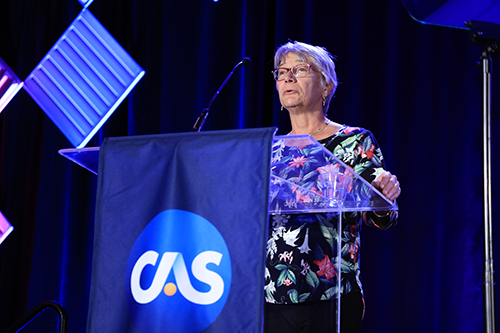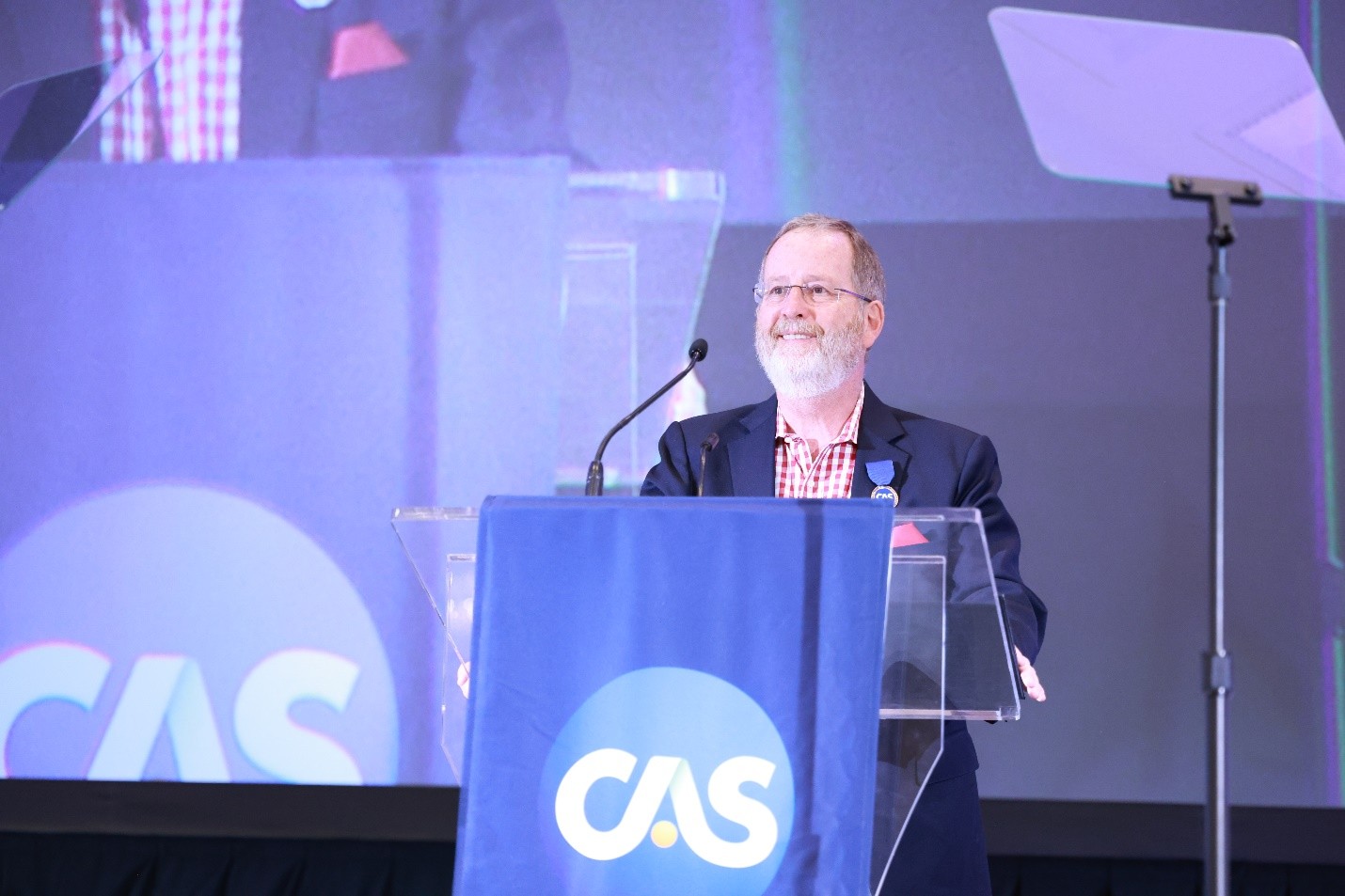Members of the Casualty Actuarial Society, like me, want our Society to be viewed as an organization of the highest professional and ethical standards undertaking the tasks of education and accreditation of professional casualty actuaries. This goal requires that the CAS be a trusted source of unbiased professional analysis of important questions pertaining to actuarial matters — a trust that must be continually earned and renewed.
In December 2020, when the CAS rescinded the “Statement of Principles Regarding Property/Casualty Insurance Ratemaking” (SOP on ratemaking) without warning to its own members, regulators or the public, trust in the Society’s leadership was diminished. The protests — about substance and process — from regulators, consumer stakeholders and CAS members to the sudden action led the CAS to reverse itself and reinstate the ratemaking SOP in May 2021.
Former CAS President Stan Khury’s thoughtful commentary, “Undivided” (Actuarial Review, November-December 2021), makes the point about members not being sufficiently involved in certain key leadership decisions. His proposal to develop a process similar to the Actuarial Standards Board to rectify this problem is worthy of deep consideration by the CAS.
The episodes to which Khury points illustrate why the Society must improve its procedures to prevent flawed decision-making and actions. But the need for reform extends beyond just involving members more completely in decision-making. I have identified four areas where CAS decision-making should be reengineered and made more accountable, not only to the members but to regulators and the public.
-
Transparency and representation issues
Not fully informing members was only part of the problem with the events Khury describes. There are key structural issues with the CAS that need to be addressed:
- There should be more public meetings of the board, perhaps on Zoom, and fewer non-public meetings.
- The CAS should increase representation of non-industry members and include more diverse members, such as consumer group and regulator representatives, on committees and task forces.
- All major CAS proposals should be published in advance with an opportunity for comment by members and regulators.
Also, the CAS should broaden the availability of minutes and agendas to members to include key documents mentioned therein. In the SOP on Ratemaking matter, I found it impossible to track what was going on when, for one of several examples, the minutes mentioned an analysis of the current value of the ratemaking SOP, but CAS Board agenda material is not available to members.
-
Conflicts of interest
The volunteer system of committee selection at the CAS invites a serious problem if conflicts of interest go unchecked. Some of the participants who volunteer for committees deal with subjects in which their employers have a large stake in the outcome. For instance, the chair of the working party on price optimization was in charge of implementing price optimization at one of the nation’s largest personal lines insurance carriers. Earlier in my career, in the 1980s, I had a similar experience before the U.S. Congress at a hearing addressing medical malpractice issues, when the chair of the CAS working group who was testifying worked for medical malpractice insurance interests. Industry can speak for itself, and the CAS needs to vet volunteers to avoid conflicts of interest when members speak on behalf of the Society. At the very least, the CAS should require that each volunteer’s complete CV accompany any statement made to regulators, legislators or the public.
-
Educational materials
I have not done a full analysis of materials on the syllabus, but without looking very hard I found reason to be concerned. For example, learning objective 6 for Exam 5 in the materials required for study to become an Associate member provides only one study reference: Chapter 13 of “Basic Ratemaking,” the first edition of which was written by two actuaries from the consulting firm EMB; subsequent editions were produced when the authors were employed by Willis Towers Watson. The copyright for the book is in the name of the CAS although produced by an industry source working for insurers. (Editor’s note: The CAS conducted a rigorous request for proposal process for writing “Basic Ratemaking,” which is in its fifth edition. The CAS Syllabus Committee reviewed proposals and selected the writers.)
Learning objective 6 states: “Describe, analyze, and validate the considerations beyond the calculated cost-based estimate of the rate when selecting a final rate change to implement” (emphasis added). Among the items the student is to study is price optimization. While the text clearly states that regulatory considerations apply, I cannot find any mention of the CAS SOP on ratemaking’s cost-based final rates principle, potentially misleading students into thinking the CAS endorses price optimization rather than disfavoring it, as we do under the ratemaking SOP. I strongly suggest that the CAS Syllabus and Examination Working Group add this disclaimer to the Exam 5 Syllabus, if not appending it to the Ratemaking text.
The study materials should be peer reviewed by not just by CAS members but by professors and other qualified independent professionals with perspectives that are broader than the insurance industry point of view. Students should be taught to systematically ask themselves the question, “How does my work as an actuary impact my insurer employer and, also, how does it impact the insureds purchasing this product?”
I highlight the training piece, because, as an actuary who moved from industry work to public service, I know that there were elements of my actuarial training that did not properly prepare me to be an actuary working for the interests of consumers of insurance.
My personal revelation might be informative: In the early 1970s, I went to Washington, D.C., as chief actuary of the Federal Insurance Administration. When I got my first paycheck, it said, “The people of the United States Pay to: J. Robert Hunter….” When I read that, it was a deeply moving, life-changing moment. I thought to myself, “Now I have to think about insurance from the people’s perspective.” From that viewpoint, I found several questionable aspects in what I had been taught.
-
CAS statements on politically charged issues
The CAS sometimes issues comments on political issues that go beyond education and wade into advocacy for a position. For example, the CAS worked with the industry-based Insurance Information Institute on an Educative Statement. The document, “Insurance Rating Variables: What They Are and Why They Matter,” I believe was intended to fend off consumer groups’ attempts to reform the use of socioeconomic rating factors in auto insurance that could make auto insurance unaffordable for many poorer persons and that are often surrogates for income and race. The paper did not even mention the rating factors at the center of the issue, such as education, occupation, homeownership and other socioeconomic characteristics. The paper left me with the impression that the consumer groups wanted to remove driving-related factors such as accidents, tickets and miles driven. That was inaccurate and seemed designed to mislead.
I believe that there are important public policy debates that touch on issues of concern to actuaries, but the CAS needs to have a better process to ensure that it is not drawn into making sweeping statements in the midst of a political debate, particularly when those can be seen as slanted toward industry positions rather than issues related to the profession itself.
I am deeply committed to the health and independence of the actuarial profession. While many of us work for insurance companies, many of us do not, and, more importantly, the work all of us do has an impact that extends far beyond whomever employs us. This is why I feel that it is so important to press for self-reflection at the CAS.
I encourage the CAS to identify and implement procedural changes to address problems such as those mentioned above. Reforms would make a repeat of the statement of principles affair much less likely. They would also demonstrate that action is being taken to strengthen our Society with respect to our position as a truly independent professional and ethical organization.
J. Robert Hunter, FCAS, is insurance director emeritus at the Consumer Federation of America. He served as federal insurance administrator during the administrations of U.S. Presidents Ford and Carter and as Texas insurance commissioner.











